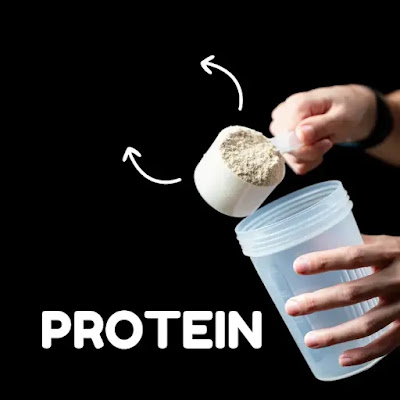Youthful-looking skin is something that many of us strive to achieve and maintain but often find ourselves struggling to do so. While there may be no miracle cure or single magic potion that can keep you looking young forever, there are a few key steps that you can take to help you achieve and maintain a healthy, youthful-looking complexion.
From incorporating healthy habits into your daily routine and following a skincare regimen tailored to your needs to invest in quality products, several strategies can help you maintain a youthful-looking complexion for years to come.
In this blog post, we will discuss the key to youthful-looking skin, the importance of investing in quality products, and offer tips for developing a skincare routine that will help you achieve the best results. Read on to learn more about the key to youthful-looking skin and how to implement it!
Wear Sunscreen.
Sunscreen is a must to keep your skin looking young and healthy. UVA and UVB rays from the sun can cause damage to your skin cells and cause premature wrinkles. Wearing sunscreen daily, even if it's cloudy or you're just going out for a short while, is the best way to protect your skin and maintain a youthful appearance.
Invest in a high-quality sunscreen with SPF 30 or higher that can use rain or shine. Also, look for a sunscreen with antioxidants like green tea extract to help protect your skin from environmental damage.
Exfoliate Regularly.
Exfoliation is key when it comes to maintaining youthful-looking skin. Regular exfoliation helps remove the dead skin cells from the skin surface, revealing the fresh, glowing skin beneath.
It also helps to unclog pores, reduce the appearance of fine lines and wrinkles, and improve skin tone. Exfoliation should be done 1-2 times per week, depending on skin type. Be sure to use a gently exfoliating scrub and avoid harsh abrasives, which can irritate or even damage the skin.
Stay Hydrated.
Hydration is key when it comes to maintaining youthful-looking skin. Water is essential for skin cell health and for keeping your skin looking soft and supple.
Make sure you drink at least 8 glasses of water daily to keep your skin hydrated and flush out toxins. You can also add fresh fruits and vegetables to your diet to help maintain hydration. In addition, invest in a good moisturizer to keep your skin hydrated and prevent dryness and wrinkles.
Use Antioxidant Serums.
One of the key components to youthful-looking skin is using antioxidant serums. Antioxidants help protect our skin from the damage of free radicals produced by environmental factors like UV radiation, pollution, and stress.
Applying antioxidant serums to the skin helps to neutralize these free radicals, reducing their damage and allowing the skin to look younger and healthier. Antioxidant serums are best used in the morning before moisturizer to form a protective layer that helps protect skin from free radicals during the day.
Get Enough Sleep.
The fifth key to youthful-looking skin is getting enough sleep. Sleep gives your body time to repair and restore itself, which can help to reduce the signs of ageing. Aim to get 7-9 hours of sleep per night, and make sure you stick to a consistent bedtime and wake routine.
Ensure your bedroom is dark and quiet, and avoid screens (TVs, phones, etc.) for at least an hour before bedtime. Getting enough sleep can help to reduce stress and improve your body's natural ability to regenerate skin cells.
Eat a Balanced Diet.
Eating a balanced diet is essential for healthy, youthful-looking skin. Eating a wide variety of fresh fruits and vegetables is key to getting the vitamins, minerals, and antioxidants your skin needs to stay healthy.
Avoid processed and sugary foods, which can lead to inflammation and breakouts. Ensure you get enough essential fatty acids in foods like fish, nuts, and seeds. This help to nourish your skin from the inside out.
Avoiding refined carbohydrates, like white bread and white rice, and replacing them with whole grains can also help keep your skin looking healthy and radiant.
Avoid Smoking and Alcohol.
Smoking and alcohol can lead to premature ageing. Not only do Tobacco and Alcohol increase your risk of cancer and other serious health conditions, but they also damage the skin and make it appear dull and wrinkled.
Smoking reduces the skin's oxygen supply and damages the elastin in the skin, which leads to wrinkles. Alcohol dehydrates the skin and can make it look dry and aged.
To keep your skin looking young and vibrant, it's important to avoid smoking and alcohol.
Use Retinoid Creams.
Retinoid creams are some of the best anti-ageing products on the market, so it's no surprise they're key to youthful-looking skin. Retinoids, derived from vitamin A, help reduce the appearance of wrinkles, fine lines and blemishes while stimulating collagen production.
Retinoid creams are available over-the-counter or by prescription and have proven safe and effective. Start using a low-strength retinoid cream every other night, then gradually increase the frequency until you're using it every night.
This allows your skin to adjust to the cream and prevents irritation.
In conclusion,
Taking care of your skin is important to look youthful and radiant. A good skincare routine involves cleansing, moisturizing, and applying sunscreen during the day. Eating a healthy diet rich in antioxidants and vitamins can also help to preserve the skin's natural glow. Additionally, anti-ageing products like retinol, serums, and exfoliants can reduce wrinkles and keep your skin youthful and vibrant.
Besides the skincare routines, there is also something called collagen, which is essential to maintaining healthy, youthful-looking skin. It is worth taking a look and understanding our ageing process.
In addition to its role in the appearance of healthy skin, it also plays an important role in wound healing and provides structural support to the extracellular matrix. The production of collagen is vital to the appearance and overall health of the skin, so it is important to understand how the process works.
In this blog post, we will explore the essential function of collagen production and how it can help us to achieve better-looking skin. We will also discuss common ways people can improve their collagen levels and how they can take steps to ensure they get the important benefits of this process.
What is collagen?
Collagen is an essential protein in the skin that helps provide structure and strength. It is the most abundant protein in the human body and is the main component of the connective tissues in the skin.
Collagen is responsible for providing the skin with firmness and elasticity, thus reducing wrinkles and promoting a more youthful appearance. As we age, our bodies produce less collagen, leading to the signs of ageing such as wrinkles, sagging skin, and age spots.
Consuming collagen-rich foods or taking collagen supplements can help maintain healthy levels of collagen in the body and promote healthy and glowing skin.
Benefits of collagen for the skin.
Collagen is an essential process for healthy-looking skin, and there are many benefits to using collagen to improve your skin's appearance. Firstly, collagen can help to reduce the appearance of wrinkles and fine lines.
Studies have shown that collagen can help to improve skin elasticity, increase hydration and reduce the appearance of wrinkles and fine lines. Additionally, collagen can help reduce inflammation in the skin, reducing acne and other skin conditions.
Finally, collagen can help improve your skin's overall tone, making it look more radiant and youthful. These benefits make collagen an essential part of any skincare routine.
How to get more collagen in your diet.
Collagen is the main structural protein in the body and plays a vital role in skin elasticity and strength. As we age, our body's natural collagen production decreases, reducing the skin's structural integrity and increasing wrinkles.
To combat this, increasing your collagen intake through your diet is important. Eating foods rich in collagen, like fish, dairy, eggs, and certain fruits and vegetables, is a great way to increase your body's collagen production.
Additionally, taking a collagen supplement can help boost your collagen levels. By getting more collagen in your diet, you can help keep your skin looking healthy, hydrated, and youthful.
Ways to supplement collagen.
Collagen is an essential process for healthy-looking skin. Not only does it help reduce wrinkles, but it also helps keep skin looking smooth and supple.
But it can be hard to get enough collagen through diet and lifestyle alone. Fortunately, there are several ways to supplement your collagen intake for better skin health. Here are four options to consider:
1. Take a collagen supplement. Collagen supplements are a convenient way to get the collagen your body needs.
2. Eat more foods rich in collagen. Foods like bone broth, fish, and eggs are all good sources of collagen.
3. Try a topical collagen cream. Applying a collagen cream to your skin can help lock in moisture and increase collagen production.
4. Use a collagen mask. Collagen masks are a great way to boost collagen and other beneficial nutrients for your skin.
Signs of collagen depletion in the skin.
Collagen is an essential process for healthy-looking skin. It's the most abundant protein in the human body, and it helps keep skin looking smooth, hydrated, and healthy.
Unfortunately, our bodies produce less collagen as we age, leading to various skin issues. To know if your skin has begun to suffer from a lack of collagen, here are five signs to look out for:
1) Dry, flaky skin;
2) A decrease in firmness and elasticity;
3) Fine lines and wrinkles;
4) Dark circles and puffiness around the eyes;
5) Uneven skin tone. If you notice any of these signs, it may be time to start supplementing with collagen for healthier-looking skin.
In conclusion,
Collagen is essential to maintaining healthy, youthful-looking skin. It is the most abundant protein in our bodies and is crucial for the elasticity and regeneration of our skin. It can be found naturally in foods such as bone broth, fish, and dairy and in anti-ageing skin care products. Taking care of your skin starts with taking care of your body, and collagen is an essential process that should be part of your daily routine.
Tags:
Beauty













